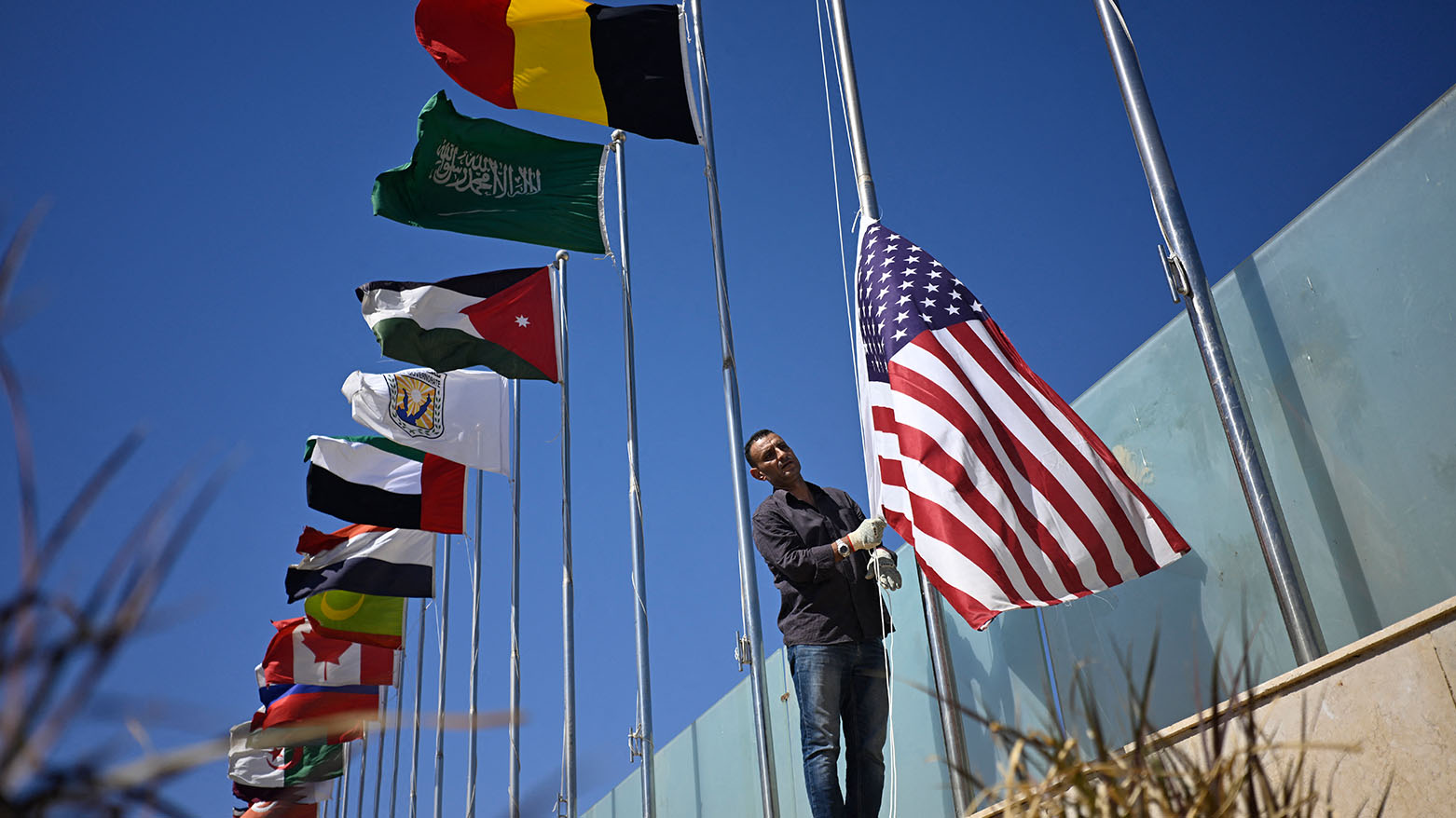Tasnim: Iran Not Expected to Attend Sharm el-Sheikh Peace Summit
Iran will not attend the U.S.-Egypt co-chaired Sharm el-Sheikh Peace Summit on Gaza, with Hamas also boycotting, complicating international efforts to build an inclusive post-war framework for the region.

ERBIL (Kurdistan24) – Iran is not expected to attend the upcoming Sharm el-Sheikh Peace Summit on Gaza, despite receiving an official invitation, according to Tasnim News Agency, which cited informed sources on Sunday. The report clarified that while Iran had been invited, Tehran has made no plans to participate, signaling a cautious stance toward the U.S.- and Egypt-led initiative aimed at shaping the post-war future of Gaza.
Egypt will host the high-profile international summit, titled “Sharm el-Sheikh for Peace”, on Monday, October 13, under the joint chairmanship of Egyptian President Abdel Fattah el-Sisi and U.S. President Donald Trump. In a statement on Saturday evening, the Egyptian presidency announced that more than 20 world leaders will participate in the conference, which seeks to consolidate the Gaza ceasefire and lay foundations for long-term peace.
“The summit aims to end the war in the Gaza Strip and restore stability through international consensus,” the statement read, underscoring Egypt’s mediating role in the recent truce between Israel and Hamas.
American outlet Axios reported that the U.S. State Department had extended invitations to numerous countries including Spain, Iran, Türkiye, Saudi Arabia, Pakistan, Indonesia, and the United Kingdom, reflecting Washington’s push for broad participation in the Gaza peace framework under Trump’s 20-point plan.
Among the confirmed participants are British Prime Minister Keir Starmer, French President Emmanuel Macron, German representative Friedrich Merz, Spanish Prime Minister Pedro Sánchez, Italian Prime Minister Giorgia Meloni, and European Council President António Costa. The summit is being viewed as an attempt to unite international and regional powers behind a common post-war strategy for Gaza following two years of conflict.
Diplomatic sources in Cairo said discussions would center on the implementation of the Israel-Hamas ceasefire, the release of hostages, the withdrawal of Israeli forces, and mechanisms for humanitarian reconstruction and governance in Gaza.
Meanwhile, Hamas announced that it will not attend the Sharm el-Sheikh summit, further complicating mediation efforts. Hossam Badran, a senior Hamas political bureau member, stated that the movement “will not participate in the meeting scheduled for Monday,” saying that “the matter has been left to the mediators, the United States, and Israel.”
Badran’s comments came amid ongoing negotiations over the exchange of 47 Israeli hostages — both living and deceased — out of the 251 abducted during the October 7, 2023, attack, in return for 250 Palestinian prisoners, including those serving life sentences, and 1,700 Gaza residents detained by Israel during the conflict. The agreement also includes the return of the remains of one Israeli hostage captured in 2014.
The Tasnim report, citing unnamed sources, suggests that Tehran’s non-participation reflects Iran’s reluctance to align with a process led by Washington and its regional allies. Observers see Iran’s absence — along with Hamas’s boycott — as a significant obstacle to creating an inclusive framework for Gaza’s post-war political order.
While Western and Arab leaders convene in Egypt to discuss future governance, security, and reconstruction in Gaza, Tehran’s decision not to attend underscores the ongoing geopolitical divide that continues to shape the Middle East peace landscape.
The Sharm el-Sheikh Peace Summit, co-chaired by Presidents Sisi and Trump, is expected to produce a joint declaration emphasizing de-escalation, humanitarian relief, and the creation of a multinational mechanism to oversee Gaza’s recovery. However, without Iran and Hamas at the table, the path to a durable and inclusive peace remains uncertain.